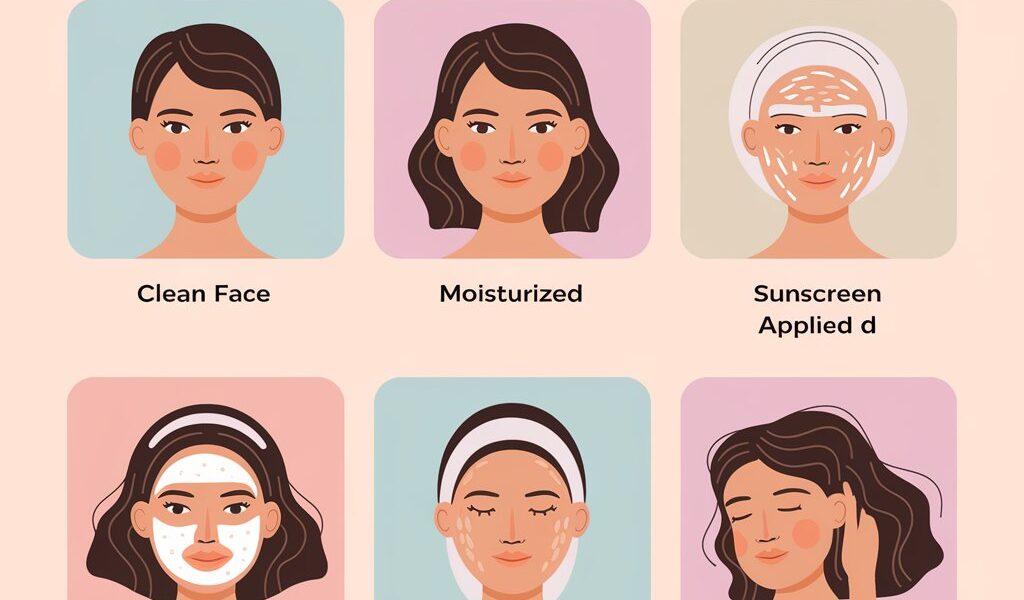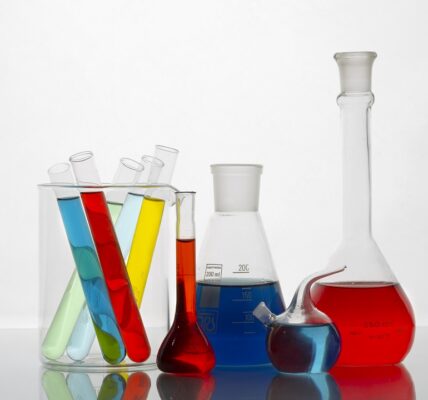Continue reading to check out the steps that cannot be left out of your skincare and self-skin care routine !The skin is the largest organ in the human body, covering almost and weighing about 4 kg. It plays a crucial role in protecting against external agents such as bacteria and viruses, as well as regulating body temperature and providing tactile sensations such as touch, pressure, heat and pain .
The skin is made up of three main layers:
- epidermis — the outermost layer of the skin, responsible for forming a protective barrier against external damage. It contains cells called keratinocytes, which are constantly renewed and form what we call the horny layer, providing smoothness to the skin. In addition, the epidermis contains melanocytes, responsible for producing melanin, the pigment that gives color to the skin, and immune defense cells;
- dermis — located beneath the epidermis, the dermis is composed of collagen and elastin fibers, blood vessels, nerve endings, and skin appendages such as hair follicles, sebaceous glands, and sweat glands. It gives the skin strength, elasticity, and sensitivity , transmitting sensory stimuli to the brain;
- hypodermis — the deepest layer of the skin is composed primarily of fat cells (adipocytes). It acts as a thermal insulator, protects against physical trauma, and stores energy for the body.
Each layer of the skin has specific functions and works together with the others to maintain the integrity and proper functioning of the heaviest organ in the human body. 1,2 Therefore, it is important to take care of all of them to avoid problems!
What are the most common skin diseases?
Because it is a highly exposed organ , the skin is susceptible to several health problems, with different causes and symptoms. Below, you will find some of the most common skin diseases.
Skin cancer
Responsible for 33% of all cancer diagnoses in Brazil , skin cancer is caused by the abnormal and uncontrolled growth of skin cells. The most common types are basal cell carcinoma, squamous cell carcinoma and melanoma, the latter being the most aggressive.
Atopic dermatitis
Atopic dermatitis is a chronic condition that causes intense itching and crusting , especially in areas such as the back of the knees. Drops in temperature can worsen symptoms in people with the condition.
Atopic dermatitis affects up to 25% of children, as well as 2% to 3% of adults. It can begin in childhood or later in life.
Psoriasis
Psoriasis is another chronic condition that causes red, scaly patches on the skin . Although there is no cure, there are treatments that can improve symptoms.
Acne
Acne is one of the most common skin conditions . It can begin in puberty and persist into adulthood. It often causes physical and emotional discomfort.
Hair loss
Androgenetic alopecia, also known as hereditary baldness, is most commonly caused by telogen effluvium. Other causes include hairstyles that pull on the hair and various medical conditions.
Rosacea
A common skin condition, rosacea is characterized by facial redness, visible blood vessels, and pimples. Rosacea is most common in people between the ages of 30 and 60 who have fair skin and a family history of the condition.
Sensitive skin syndrome
Sensitive skin syndrome is a common and challenging condition. Most affected patients report facial irritation, burning, and stinging after using cosmetic products.
What skin care routines should be part of your daily routine?
Now, how about understanding how to avoid the problems above and ensure much healthier and well-skin care? Continue reading to check out the steps that cannot be left out of your skincare and self-skin care routine !
1. Sun protection
Excessive sun exposure can damage your skin . Some of the associated problems include sunburn, premature aging, and an increased risk of skin cancer. That’s why it’s crucial to adopt effective sun protection measures .
In addition to using sunscreen daily, it is important to choose a quality product that offers a broad spectrum of protection against UVA and UVB rays, protection against visible light, anti-pollution, and protection against infrared A. The Sun Protection Factor (SPF) should be appropriate for your skin type and the intensity of sun exposure.
As for application, it is essential that it is done correctly, covering all exposed areas and reapplying regularly, especially after swimming or sweating.
And don’t forget: in addition to sunscreen, protective clothing, hats and sunglasses are important to protect your skin from sun damage.
2. Hydration
Well-hydrated skin not only looks more beautiful and healthy, but also works better as a protective barrier against harmful external agents. Choosing a moisturizer that suits your skin type is essential.
For dry skin, it’s best to use thicker moisturizers that are rich in emollient ingredients like natural oils and butters. On the other hand, for oily skin , it’s best to opt for lighter, oil-free products that help lock in moisture without clogging pores.
In addition to using topical moisturizers, it’s important to keep your body hydrated from the inside out by drinking plenty of water throughout the day . This helps keep your skin hydrated and healthy, especially in dry climates or during the winter months when skin tends to dry out more easily.
3. Cleaning
Properly cleansing your skin care is essential to remove dirt, oil, dead cells and product residue that can clog pores and cause problems such as acne and inflammation.
However, it is important to find a balance, as over-cleansing or using products that are too harsh can cause dryness and irritation. Choose a gentle soap that is suitable for your skin type, and wash your face twice a day, morning and night .
Additionally, use a gentle toner to remove any remaining residue and restore your skin’s natural ph. Avoid scrubbing your skin too hard and opt for gentler cleansing techniques, such as gently massaging your face in circular motions. This will help keep your skin clean, fresh, and healthy over time.
4. Use of quality products
Using quality products is essential to maintaining healthy and beautiful skin. Choosing products formulated with high-quality and safe ingredients ensures that your skin receives the nutrients it needs without being exposed to harmful substances.
Furthermore, these products undergo rigorous testing to ensure their effectiveness and safety, providing more consistent and reliable results. Keep an eye on them and always ask your dermatologist any questions you may have about the most appropriate choices.
5. Consultations with the dermatologist
Visits to a dermatologist play a crucial role in maintaining healthy skin. These specialists are trained to diagnose and treat a wide range of skin conditions, from acne to skin cancer.
During the consultation, the dermatologist performs a thorough skin assessment , discusses specific patient concerns, and offers personalized guidance on appropriate skin care and treatments.
Regular visits to your dermatologist are important not only to treat existing problems, but also to prevent future conditions and keep your skin healthy and radiant over time.
6. Healthy eating
A healthy diet is essential for healthy skin, hair and nails . Several nutrients found in foods can slow down aging, strengthen hair and nails, and improve circulation.
For example:
- collagen helps in the formation and renewal of skin fibers, preventing sagging and stretch marks;
- biotin participates in the production of keratin, an essential protein for healthy hair and nails ;
- vitamin C fights free radicals, which contribute to premature aging;
- Hyaluronic acid combats dry skin by bringing more hydration to the outer layer of the skin.
Conclusion on Skincare
In conclusion, skincare is not just a routine but an essential aspect of maintaining overall health and well-being. By understanding your skin type and incorporating appropriate products and practices, you can enhance your skin’s appearance and resilience. Consistency, sun protection, and hydration are key elements that contribute to a glowing complexion. Moreover, adopting a holistic approach that includes a balanced diet, regular exercise, and sufficient sleep will further support your skincare goals. Ultimately, investing time and effort into your skincare routine can yield significant long-term benefits, allowing you to feel confident and radiant in your own skin.
FOR FERDUR INFORMATION VISIT:https://proteomics.uk/




